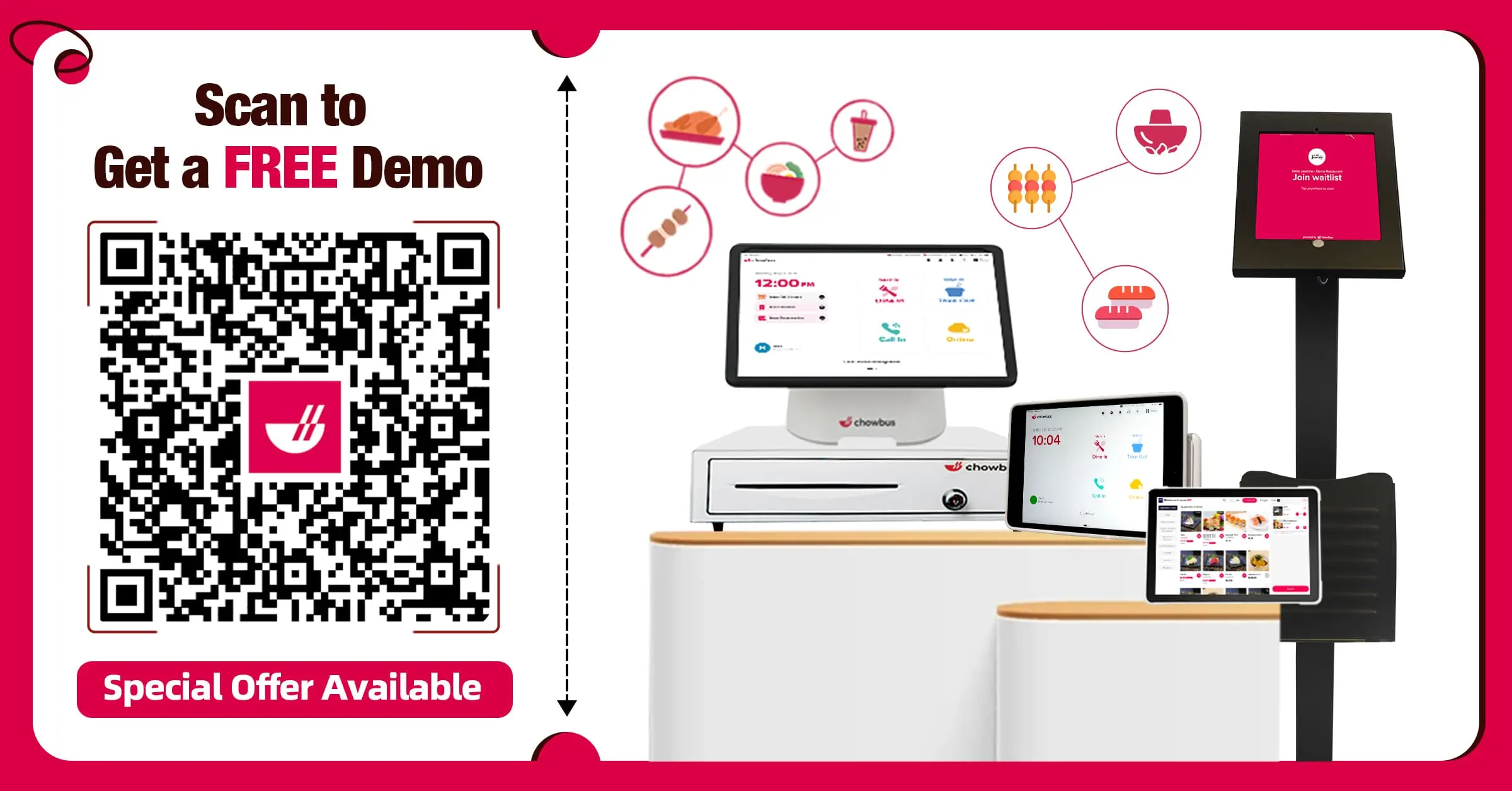Minimum Wage NJ: New Jersey Minimum Wage for 2024

New Jersey's minimum wage landscape is on the move, set to reach new heights in 2024. For business owners, restaurateurs, and employers across the Garden State, understanding the implications of this upward trend is crucial. From current standards to future increases, this blog post will navigate the intricate details of New Jersey's minimum wage trajectory, offering key insights to stay ahead in a competitive market.

What is the Minimum Wage in NJ?
As of 2023, NJ's minimum wage sits at $14.13 per hour for most employees. A lower rate applies to certain groups; for instance, smaller businesses with less than six workers and seasonal companies pay $12.93, while agriculture-based businesses provide $12.01 per hour. Tipped employees receive a base rate of $13 an hour alongside their tips, and there’s a specialized rate of $15 per hour for those in long-term care.
Looking ahead, a planned increase is on the horizon. Effective January 1, 2024, the minimum wage in New Jersey for many employees will rise to $15.13 per hour. Small and seasonal employers will see their rate climb to $13.73, and agricultural workers will have their wages adjusted to $12.81 per hour. The rate for tipped workers will hold steady at $13 plus tips, and long-term care workers will earn $18.13 per hour.
Historical Minimum Wage Rates in New Jersey
Understanding the historical context of minimum wage rates in New Jersey is crucial for business owners. The journey towards a $15.13 minimum wage in NJ has been gradual, with incremental increases over several years. Here’s a brief overview of how the minimum wage has evolved in the State:
2013: $7.25
2014: $8.25
2015: $8.38
2016: $8.38
2017: $8.44
2018: $8.60
2019: $10.00
2020: $11.00
2021: $12.00
2022: $13.00
2023: $14.13
2024: $15.13
This historical perspective helps you see the trajectory of minimum wage rates in New Jersey and how they have gradually increased to reach the current level in 2024.
Source: Labor Law Center
New Jersey State vs. Federal Minimum Wage
The New Jersey State minimum wage is higher than the federal minimum wage. As of 2023, the New Jersey State minimum wage is $14.13 per hour for most workers. In contrast, the federal minimum wage remains stagnant at $7.25 per hour. This significant difference means that as an employer in New Jersey, you are obligated to pay your employees at least $14.13 per hour, even if they fall under the coverage of the federal Fair Labor Standards Act (FLSA).
The gradual increase in the New Jersey State minimum wage began in 2018 and has been steadily progressing. The ultimate goal of the New Jersey State Legislature is to reach a minimum wage of $15 per hour by 2024. This ambitious target reflects the State’s commitment to ensuring fair compensation for its workforce. On the other hand, the federal minimum wage has remained unchanged since July 24, 2009, creating a considerable gap between state and federal requirements.
Overtime Pay in New Jersey
In addition to understanding the minimum wage, business owners must also be aware of the rules governing overtime pay in New Jersey. Overtime pay is mandated for employees who work more than 40 hours in a workweek. In New Jersey, eligible employees are entitled to 1.5 times their regular hourly wage for each hour worked beyond the 40-hour threshold.
It's essential to ensure that your business complies with these overtime regulations to avoid legal repercussions and to compensate your employees for their additional hours worked fairly.
New Jersey Minimum Wage Exemptions
In New Jersey, minimum wage exemptions are specified under various conditions. Employers are generally required to pay a minimum wage rate updated annually based on the consumer price index. However, exemptions include part-time employees primarily caring for children in the employer’s home, employees under 18 without a special vocational school graduate permit, motor vehicle salespeople, outside salespeople as defined by the commissioner’s regulations, and volunteers at agricultural fairs receiving only incidental benefits.
Additionally, there are exemptions for overtime pay requirements for certain workers, like those in executive, administrative, or professional capacities, farm laborers, hotel employees, motor bus carriers, and limousine drivers. Seasonal employees and small employer staff are subject to different minimum wage increments, and training wages can be paid at 90% of the standard minimum wage under certain conditions. Lastly, long-term care facility direct care staff members receive a wage of $3 higher than the prevailing minimum wage.
Please refer to the official New Jersey Department of Labor and Workforce Development's wage and hour laws and regulations for the most current and detailed information.
How is the New Jersey Minimum Wage Set?
The New Jersey Department of Labor and Workforce Development sets the State’s minimum wage. It determines the wage through the rate outlined in state legislation or by calculating adjustments based on the Consumer Price Index, opting for the higher value. Governor Murphy’s 2019 legislation established a progressive minimum wage increase, aiming for a $15 per hour standard by 2024 for most workers. Following this threshold, the State’s Constitution mandates annual increments aligned with the Consumer Price Index.
Particular groups, such as seasonal workers, small business employees, those in agriculture, and direct care staff at long-term care facilities, are subject to specific timelines and increments. For instance, seasonal and small business employees will reach the $15 per hour goal by 2026, while agricultural workers have until 2027.
Tipped employees receive a base cash wage of $5.26 per hour. Employers can use a $9.87 tip credit towards meeting the minimum wage. Should tips and the base cash wage not meet the statewide minimum, employers must compensate for the difference, ensuring employees receive the full minimum wage.
How Will the Minimum Wage Increase Impact My Business?
As an employer, it’s essential to assess how the impending increase in the minimum wage in New Jersey will directly affect your business. The impact can vary depending on your industry, but these changes hold particular significance for restaurant owners.
1. Labor Costs:
The increased minimum wage will directly raise labor costs for positions currently paid under $15 per hour. Employers may need to compress wage scales to accommodate the new minimum wage floor. Additional payroll tax and benefit costs tied to wages could also increase. Some labor-intensive businesses may need to reduce staffing levels to help offset cost increases.
2. Pricing Strategies:
Restaurants may pass some of the higher labor costs on through modest menu price increases. However, restaurants operate in a competitive environment and have limited ability to raise prices without impacting customer traffic. So, cost absorption may be necessary to avoid losing business.
Restaurants could also adjust service models to require less staff by adding restaurant technology solutions, such as a modern restaurant POS (Point of Sale) system. These systems can streamline operations, improve customer service, and provide valuable sales data, helping to reduce labor costs and increase efficiency.
3. Profitability:
Profit margins will likely shrink unless restaurants can fully offset the higher costs through price increases or other measures. Restaurants already operate on thin margins, so owners must closely analyze the full impact of the minimum wage hike across all facets of their operations to determine how best to adapt. Cutting costs in other business areas may also be required to help maintain profitability levels if price increases cannot fully cover the added labor costs.
New Jersey's rising minimum wage challenges restaurant owners to reevaluate their business models and make adjustments to compensation, pricing, staffing levels, and budgets. Proactive planning and cost control measures will be essential to remaining profitable.
Implications for Business Owners
The ripple effects of the minimum wage in NJ extend beyond the surface level of increased labor costs. Here's what you need to consider:
Budget Re-evaluation
As your labor costs substantially increase, you'll need to take a hard look at your budgets and find areas where you can reduce costs or optimize operations to maintain your profit margins. This may require you to renegotiate contracts with suppliers, refine menu offerings, or find other ways to boost net revenues.
Staffing Adjustments
You may need to adapt your staffing approaches to align with your revised budgets. Compressing schedules when customer traffic is slower, cross-training employees to handle multiple functions, or shifting more heavily towards part-time and seasonal hires can help balance payroll spend and service quality.
Business Growth and Scalability
The rising wage floor may influence your growth plans. You may have to delay or rethink expansion for new locations, extended operating hours, or additional products and services based on the projected profitability hit. However, those who strategically invest in technology-driven efficiencies could find pathways to smartly scale up market share.
How Can I Prepare My Business for the Minimum Wage Increase?
As New Jersey’s minimum wage approaches the $15 per hour mark by 2024, restaurant operators are bracing for significant increases in labor expenses. However, restaurant owners can mitigate profit and margin pressures from the mandated wage hikes by taking proactive measures around budgeting, technology adoption, revised staffing models, and operational efficiency. The key is developing long-term financial plans and optimizing how front-of-house and back-of-house operations can absorb higher salaries.
Financial Planning
Start by thoroughly analyzing your current finances including labor as a percentage of revenue, operating expenses by category, historical sales patterns, and profitability levels. Construct models factoring in annual incremental wage increases to project P&L changes over the phase-in timeline. This allows you to make adjustments to rosters, schedules, menus, and budgets ahead of time rather than reacting year-to-year.
Technology Utilization
Emerging technologies can offset some rising labor expenses if strategically implemented. Solutions like online ordering, tableside POS systems, kiosks, QR code menus, and integrated third party delivery partnerships allow for less staff to process higher order volumes. The goal is to do more with less through automation.
Staffing Optimization
You can right-size your roster and schedules over time with clearer budget projections. Cross-train employees for greater flexibility across multiple roles as needed. Incentivize peak period coverage to align staff hours with the busiest sales times. Consider part-time and seasonal hires to manage costs without compromising service quality.
Restaurant owners have options to alleviate margin compression despite mounting wage mandates. Blending financial discipline, customer-facing technologies, and evolving staffing models can lead to sustained profitability.
NJ Minimum Wage and Labor Law Posters
As an employer in New Jersey, you are legally obligated to keep your employees informed about their labor rights, including the current minimum wage laws. The New Jersey Department of Labor and Workforce Development provides all the necessary labor law posters for this purpose.
You can download or print these posters from the NJDOL’s official website at no cost. It’s important to display them where your employees can readily see them, such as break rooms or other common areas. If you need physical copies, a simple phone call to the Office of Constituent Relations will help you obtain them. Compliance with these posting requirements is part of your legal responsibilities and a step towards creating a transparent and knowledgeable workplace for your team.
Conclusion
The New Jersey minimum wage is set to undergo significant changes in 2024, and you need to be prepared. Understanding the current state of the minimum wage, how it's determined, and its potential impact on your business is essential for making informed decisions.
As you navigate these changes, remember that preparation is key. Reevaluate your budget, explore automation and efficiency solutions like POS systems, and consider seeking expert advice to ensure your business thrives in the evolving landscape of the New Jersey minimum wage.
We encourage you to take proactive steps in preparing your business for the upcoming minimum wage increase. One tool that can significantly benefit your restaurant operations is the Chowbus POS system.
To see how it can streamline your business and help you adapt to the changing minimum wage landscape, book a free demo or consultation today. Stay ahead of the curve and position your business for success in New Jersey's evolving business environment.

Frequently Asked Questions About the Minimum Wage in NJ
To provide even more clarity for business owners, here are answers to some frequently asked questions related to minimum wage laws in New Jersey:
Is NJ Minimum Wage Going Up in 2023?
As of January 1, 2023, most employees' minimum wage has increased by $1.13 to $14.13 per hour. This change is a step in a series of planned increases, aiming to reach a $15 per hour minimum wage by 2024 for most employees, according to legislation signed by Governor Murphy in February 2019.
What State has a Minimum Wage of $15?
As of 2023, the states that have implemented a minimum wage of at least $15 include Washington ($15.74), California ($15.50), Massachusetts ($15.00), and the District of Columbia ($15.20).
Connecticut has also increased its minimum wage to $15.00 per hour as of June 1, 2023. Additionally, several other states have enacted phase-ins to reach the $15 minimum wage in the future, including Florida, New Jersey, Illinois, Maryland, and Rhode Island.
How Many Hours is Full Time in NJ?
In New Jersey, the employer determines full-time employment hours, as there is no specific definition under the Fair Labor Standards Act (FLSA). Employers typically consider full-time work, around 35 to 40 hours per week.
Disclaimer: The information provided in this blog post regarding New Jersey’s minimum wage is intended for general informational purposes only. It should not be construed as legal, accounting, or professional advice. We strive to ensure the accuracy and timeliness of the information presented; however, the laws and regulations governing minimum wage are subject to change and may have been updated since publication. Employers and other interested parties should consult a qualified professional or legal counsel for advice concerning any particular issue or problem. The opinions and views expressed in this blog post do not necessarily reflect those of the Labor Law Center, and we are not responsible for any errors or omissions in this post or for any actions taken based on the information provided.

Recommended Articles: